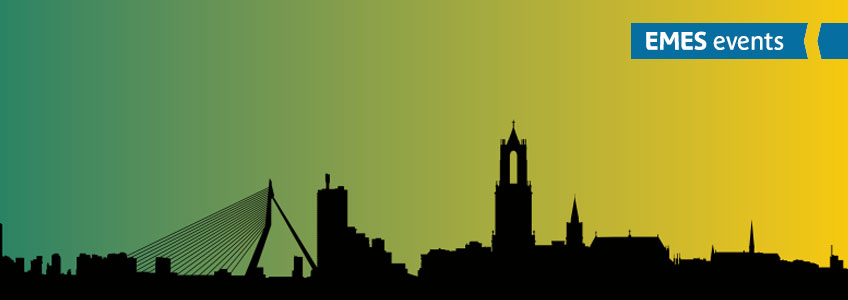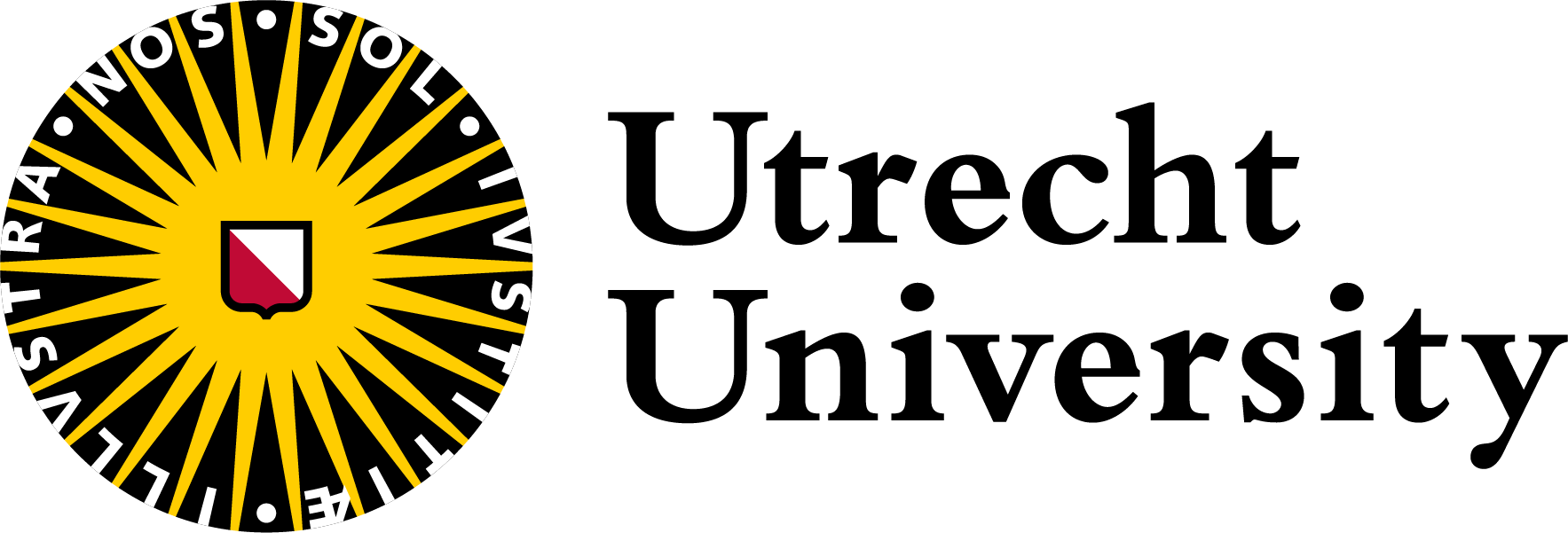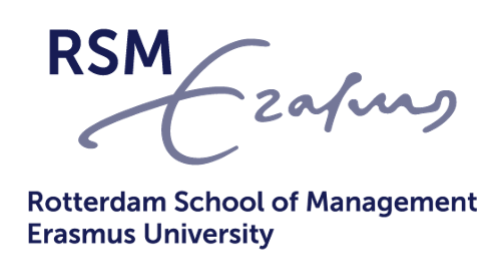Conference Rationale
In the face of unprecedented ecological, social, democratic, demographic and economic challenges, there is a growing need for transformative change that moves beyond incremental improvements. The ‘SE field’ (social enterprises, social entrepreneurship, the social and solidarity economy, and social innovation) with its community-centered approaches, is increasingly recognized as a key actor in fostering a deep transition towards a more equitable, sustainable and just society. The conference, Scaling Through Communities: The role of Social Entrepreneurs and Social Enterprises in Boosting Societal Transitions, seeks to explore the strategies, innovations, partnerships and contexts that enable SE to drive systemic change while scaling its impact across diverse contexts, rooted in the historical resilience seen in institutions for collective action, spanning a millennium and highlighting the potential of community self-governance as both a scalable and sustainable model.
At the core of this conference is the recognition that SE does not take place in isolation but is embedded in complex networks of relationships with communities, public institutions, for-profit businesses, non-governmental organizations and social movements. By examining the transition pathways of SE organizations, we aim to understand how this field can maintain its mission-driven focus while tackling, in complex ecosystems, the challenges and opportunities of systemic change.
The 10th EMES International Research Conference on Social Enterprise will thrive to contribute to a wider understanding of the SE field through:
A Path Forward – As we grapple with an uncertain future, SE offers new possibilities through their ability to reimagine and reshape societal systems. Through cross-disciplinary dialogue, critical reflection, and the sharing of diverse experiences, this conference aims to contribute to a collective understanding of how SE organizations can help build just, sustainable, and resilient economies and societies for the future.
A Focus on Global Diversity – This conference welcomes contributions on SE from both the Global North and the Souths, with special attention to the plurality and diversity of entrepreneurship and organizational models around the world (such as Indigenous entrepreneurship, community-based models, and inclusive entrepreneurship). By bringing diverse voices, experiences, and approaches, including youth and migrant activists, into dialogue, we aim to explore new pathways for systemic transitions that are both equitable and resilient.
Critical and Plural Discussions around Theoretical and Methodological Foundations – This conference will welcome a variety of theoretical frameworks and methodologies around SE research, engaging deeply in different epistemologies and critical
approaches. We invite researchers to explore synergies between different disciplines to understand the complex dynamics between transition pathways, system change, community-based initiatives and nature-based approaches, to go beyond the dichotomy between human and non-human entities. This conference will serve as a platform for advancing these discussions and catalyzing critical debates between diverse research communities. Contributions addressing Polanyian, feminist, decolonial and other deconstructive approaches transversely across lines are encouraged.
Conference Thematic Lines
Line 1: Theoretical Frameworks and Methodologies for Next Frontiers in SE Research
This line invites critical exploration of the theoretical frameworks and research methodologies that underpin studies on SE and their role in societal transitions. It addresses key concepts such as commons, cooperatives, decolonial and feminist approaches, social entrepreneurship, solidarity economy and social innovation, and the methodologies that have been used to study them, to focus on their transformative potential. Contributions that reflect on epistemological challenges, inter and transdisciplinary research, propose innovative research designs, or reflect on historical and interdisciplinary frameworks particularly encouraged.
Line 2: Exploring the SE Ecosystems: Institutions, Networks, Policies and Governance
This theme invites papers analyzing the complex ecosystems supporting or hindering social enterprises, including the roles of institutions, networks, meta-organizations, policy frameworks and polycentric governance systems. How do these ecosystems (not) foster innovation, resilience, and sustainability in the sectors that they cover? In particular, it examines how decentralized, multi-level governance arrangements—such as networks of organizations or collaborations across sectors—support social enterprises in addressing complex societal challenges. Topics include the coordination of multiple actors, governance across different scales, transition intermediaries, and the role of meta-organizing in fostering innovation, inclusivity, and systemic change. Contributions are encouraged on how these ecosystems and governance structures can enhance cooperation, accountability, and effectiveness in both local and global contexts. This theme also encourages exploration into governance approaches inspired by the adaptive scaling models of historical Institutions for Collective Action (ICAs), examining multi-level, decentralized governance mechanisms that can drive systemic transitions in contemporary SEs. Submissions that provide both theoretical insights and practical case studies are welcome.
Line 3: Feminist approaches and gender in SE research
This thematic line explores the diversity of positions through which SE–as an economic activity or as a discipline–is enriched, encountered and critiqued by feminist and gender-focused approaches and intersectionality. It explores the impacts that feminist scholarship, women-led movements, and community economy practices (based on feminist ideals) have had on both the SE field itself and as a partner in collective critiques of the white and ‘malestream’ contours of mainstream entrepreneurship research. We welcome papers which address the gender and diversity imbalance in SE as well as racism and (the invizibilisation of) the contribution of minorized groups to SE. We also encourage contributions that see SE as either a conceptual tool or as a specific site of interest in extending feminist critiques of the structural, policy and practice barriers blocking gender parity across different geographical sites and into new disciplines. Additionally, papers engaging with more classical discussions in women’s entrepreneurship research (gender mainstreaming and representation, resources, funding and innovation etc.) are welcomed if they anchor themselves in the particular realities of the SE domain. Finally, we welcome the use of critical / feminist research methods and epistemologies, intersectional lenses and perspectives grounded in the realities of women and others living under the pressures of economic and gendered coloniality.
Line 4: Fostering Inclusion through SE
This line explores the role of social enterprises in promoting inclusive entrepreneurship, with a particular focus on migrants, refugees, marginalized groups, and communities, and gender equity. It examines how social enterprises foster integration, create opportunities for vulnerable populations, and contribute to more inclusive economies. Topics include barriers to entry for migrant and female entrepreneurs, innovative support mechanisms that address both gender and social inequalities, and the broader impact of social enterprises in fostering social cohesion, work integration, equity, and gender inclusion. Contributions could also be connected to innovative work integration pathways in which work integration social enterprises (WISE) are fostering work and social inclusion opportunities and transforming labor market and/or social policies by empowering vulnerable workers.
Line 5: Digital Transformation and SET
This line examines the impact of digital technologies on the operations, scaling, and innovation of social enterprises. It explores whether and how social entrepreneurs leverage digital platforms, artificial intelligence, blockchain, and other technologies to enhance their social and environmental impact. Topics include digital inclusion, the use of technology to improve access to resources, and the challenges of maintaining mission-driven objectives in an increasingly digital world. Contributions that address the digital divide and the role of technology in fostering resilience and systemic change are particularly encouraged. Also encouraged are contributions that explore the relationship between cooperative organizational models in the new technologies and SE.
Line 6: SE’s Scaling Pathways toward Systemic Change
This line critically examines the diverse views, processes, and strategies employed by SE organizations to scale their impact. It explores how these strategies influence and interact with broader systemic changes in society. Topics include scaling through networks and communities, the challenges of maintaining mission integrity during upscaling, and the role of social enterprises in transforming dominant social, economic, and ecological systems. Contributions that explore and discuss theoretical and practical approaches to scaling, including the different types of scaling (out, up, deep, through…), as well as different case studies identifying inter alia levers, obstacles and conditions of transition pathways, are encouraged.
Line 7: Financing and Business Models for SE: Challenges and Innovations
This line addresses both the financial and business model aspects of SE organizations, exploring traditional and innovative approaches that enable them to scale and sustain their impact adopting a critical perspective and discussions. It covers topics such as social impact investing, blended finance, crowdfunding, cooperative financing mechanisms, solidarity finance, social currencies and sustainable business models, examining their opportunities and risks. The line also delves into the challenges social enterprises face in accessing capital and developing resilient business models that maintain financial sustainability while adhering to their social mission. Contributions on to what extent new financial models and business model innovations can support the transition to more resilient, inclusive, and sustainable economies are encouraged.
Line 8: Social Impact and Impact Measurement in the SE Field
This thematic line focuses on the critical intersection of social impact and impact measurement in the SE field. It explores the pressing need for SE organizations to demonstrate their societal contributions through robust measurement frameworks, addressing questions around the definition and estimation of social impact. Contributions are expected to encompass a range of topics, including methodologies for assessing social impact, the dynamics of social value creation, strategies for scaling impact and critical perspectives of social impact measurement. By engaging with these themes, we aim to advance both theoretical understanding and practical applications that enhance the effectiveness and accountability of social enterprises in delivering meaningful social change.
Line 9: Ecological Sustainability and the Circular Economy
This line explores how social and sustainable SE may contribute to ecological sustainability through innovative practices such as the circular economy, regenerative business models, resource-efficient systems, and sustainable energy solutions. It invites discussions on how SE organizations reduce environmental impact, promote renewable energy use, and build resilience in the face of ecological challenges in different areas of activity (such as tourism, mobility or housing). Particular attention is given to SE enterprises that focus on nature, biodiversity, or ecosystems, in terms of protection, restoration or sustainable use, in a context shaped by the implementation challenges of the new EU Nature Restoration Law, as well as innovative SE initiatives led by youth activists. Contributions on scaling sustainable and circular models, integrating strong sustainability into organizational practices, and fostering systems of shared value creation—including energy transitions—are particularly welcomed.
Line 10: Commons and Communities in Societal Transitions from past to present: Toward Post-Growth and Nature-based Futures
This line explores the role of commons-based governance and community-driven initiatives in fostering societal transitions that move beyond growth-oriented economic models and bring nature to the fore. It focuses on how communities manage shared resources, foster cooperation, and scale collective action to promote strong sustainability, equity, and resilience. By emphasizing post-growth principles, this line invites discussions on how commons and communities can challenge dominant growth paradigms and contribute to alternative, regenerative economies that prioritize well-being over GDP across the different sectors and contexts in which they are active. This
line is interested in the emergent research field on “Nature-based Enterprises”, since it raises (or should raise) questions historically central to EMES debates (such as the contours of a meaningful and workable definition and the place of participatory governance in such a definition). This line encourages methodological and (inter/trans)discipline diversity, as well as reflexibility on why/how to strategically engage with hegemonic framings, and discussions on historical and contemporary commons models as frameworks for managing shared resources, prioritizing resilience, and challenging dominant growth paradigms. Contributions examining both theoretical frameworks and practical examples of post-growth approaches are encouraged.
Line 11: The SE Field within the Pluriverse
This line highlights the role of social enterprises, Indigenous entrepreneurship, and post/decolonial perspectives in fostering strong sustainability, social justice, and the recognition of diverse worldviews in the Global Souths and the Global North. It explores how culturally grounded practices and community-based models contribute to economic resilience, environmental stewardship, and social inclusion. By embracing the concept of the pluriverse—acknowledging multiple ways of being, knowing, and doing—this line invites discussions on how social enterprises can challenge dominant paradigms and amplify marginalized voices to drive transformative change. Topics include Indigenous governance systems, alternative organizing principles, challenges faced by entrepreneurs in low-resource settings, and plural worldviews and post-development thinking on entrepreneurship.
Line 12: Fostering SE in Culture and the Arts
This line explores the intersection of SE and culture and the arts, focusing on how cultural entrepreneurship contributes to social and systemic change. It examines how the SE field not only engages with hybrid forms of (creative, social and economic) value but institutionalizes its values in alternative kinds of organizing – including community arts projects, arts-activism, artist collectives, and innovative interventions in the cultural and creative sectors (CCS). In trying to bring the CCS onto equal footing with other areas of enterprise research, the line embraces classically qualitative and quantitative approaches, but also the array of arts-inflected methodologies, including practice-based research, sensory ethnography, community theatre and artistic poetry. All these perspectives are brought to bear on wider issues of cultural capital, and the role of artistic initiatives in addressing social, economic, and environmental challenges. Further topics include the role of the arts in community development, the impact of cultural and artistic social enterprises on local economies, and innovative collaborations between artists and SE organizations to foster cultural sustainability.
Line 13: Rural and Regional Perspectives on the SE Field
This thematic line focuses on exploring, understanding and explaining the role of social and solidarity economy (SSE) organizations and social innovation (SI) initiatives in rural areas and regions. Active in a wide range of sectors, including care, sustainable agriculture and agri-food systems, social farming, remote working, housing, social services, tourism, community infrastructure, renewable energy, and recycling, among others, these organizations and initiatives have historically played a key role in fostering an inclusive and integrated rural development and a more balanced regional development. Context-spatially-place sensitive research is particularly welcomed.
Line 14: Education and Training to Advance the SE Field
This thematic line invites contributions on education and training in the SE field. This line invites papers exploring what is taught -and what is left out- in SE education and training, such as key concepts, frameworks, skills and competences in programmes and curricula. It also welcomes studies exploring how SE is taught and how students learn SE, including pedagogical approaches, teaching methods, teaching practices, teaching tools and the role of technology. The line also welcomes studies focusing on those that receive SE education, from undergraduate and graduate students to executives, practitioners, and communities. Additionally, it invites contributions exploring the contexts in which SE education takes place -global North and Souths-, and how factors like resource access and local contextual conditions impact learning. Finally, the line seeks insights into how research on SE education is conducted, encouraging discussions on relevant, novel and alternative methodologies and research philosophies.
Line 15: Cooperatives Facing Transitions
As one of the key components of the SE, cooperatives have existed for around two hundred years, operate in all fields of economic activity and have continually adapted to changing conditions. Alongside traditional forms of cooperatives (e.g., consumer cooperatives, labor cooperatives, mutual-aid societies, agricultural cooperatives, credit cooperatives etc.), innovative forms of cooperation addressing new economic and social concerns have emerged over the past 30 years in selected countries. These include cooperatives delivering social, educational, and work integration services to local communities and disadvantaged groups, as well as cooperatives managing local resources. In line with the UN International Year of Cooperatives that will be celebrated in 2025 under the theme “Cooperatives build a better world”, this line aims to bring together critical studies focused on the contribution of cooperatives to fighting against
inequalities and tackling the eco-social crisis that is affecting both the Global North and Souths. Especially welcome are critical papers exploring the relevance (or not) of the “cooperative difference” in the contemporary economic system from various disciplinary angles. These may include studies focused on cooperatives’ evolution such as the emergence of new cooperative forms; cooperatives’ capacity to create decent jobs and safeguard employment in times of crisis; cooperatives’ inclination to reconcile social and environmental justice and cooperatives’ capacity to attract the next generation of activists.
Taking a worldwide and interdisciplinary research perspective, including perspectives from sociology, geography, economics, political science, forestry, management, business, food systems, agriculture, is welcomed. Research including transdisciplinarity is also encouraged.
- Follow updates on the conference and sign up for the EMES News Alerts at www.emes.net
- For any questions about this conference, please write to 10emesconf@emes.net
- LinkedIn: emes-international-research-network | rotterdam-school-of-management-erasmus-university | universiteit-utrecht
- Facebook: @EMESnetwork | @RotterdamSchoolofManagementErasmusUniversity | @UtrechtUniversity
- Instagram: @rsmerasmus | @utrechtuniversity
- Event hashtags: #10EMESconf | #ScalingThroughCommunities | #SEBoostingSocietalTransitions







